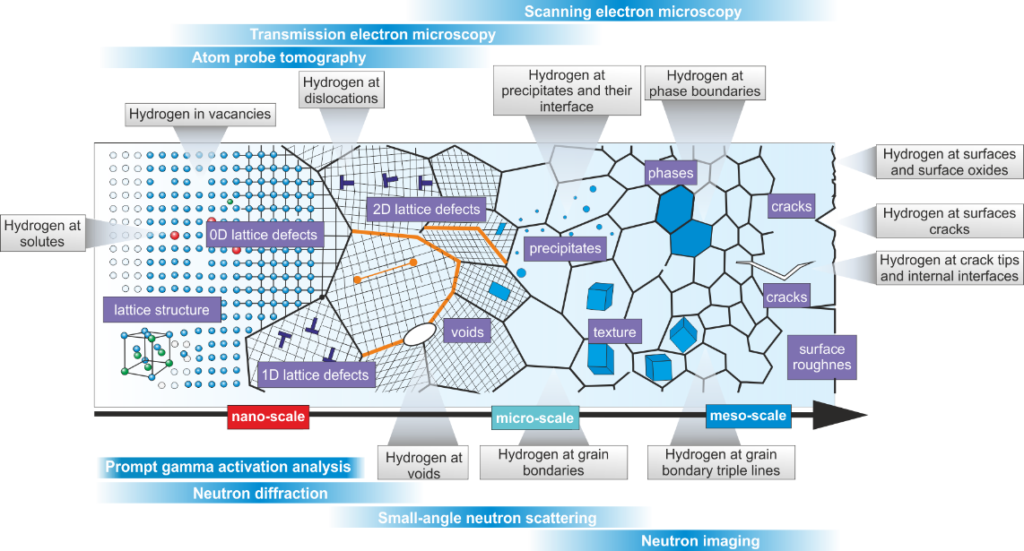H2Mat – Influence of hydrogen on industrial developed and applied alloys
Subject area:
High Temperature Materials
Responsible Employees:

Abstract
With the European Green Deal, the Commission of the European Union (EU) has set itself the ambitious task of combining the reduction of greenhouse gas emissions with the sustainable conversion of European industry to a climate-neutral economy. Within this framework, hydrogen has been highlighted as essential to solving the problems and developing Europe’s energy systems. A particular problem is the failure of components due to hydrogen effects, which can occur in various industrial systems such as high-pressure hydrogen storage systems, pipelines, fuel cells, as well as in aircraft components made of high-strength superalloys. To avoid failure of critical components in the future, an in-depth understanding of the mechanisms of how hydrogen interacts with advanced engineering materials is required. In this project, VDM Metals (alloy developer), MTU Aero Engines (alloy user), the Technical University of Munich with the Heinz Maier-Leibnitz Research Neutron Facility FRM II (large-scale research facility) and FAU Erlangen-Nuremberg (university) form a consortium to address open questions about the mechanisms that lead to hydrogen embrittlement, for example. Through the collaboration of research and industry, a special focus is on the economic feasibility of the results in order to optimize the entire value chain, starting from material development to the final material application. The main goal of this project is the development, setup and commissioning of sample environments for hydrogen loading and detection at the FRM II neutron source. Using the various instruments and microscopes available at FRM II and FAU, hydrogen-loaded metallic materials will be characterized. In parallel, the hydrogen contents in the samples will be measured by different methods and correlated with the mechanical properties. Alloys that will be used in aircraft engines and stationary gas turbines or the fuel cell will be investigated in particular, in order to test the use of hydrogen as a climate-friendly fuel of the future.
The project H2Mat is funded by the Federal Ministry of Education and Research with the funding reference number 05K22WE1 in the joint project H2Mat – „An apparatus to study the influence of hydrogen charging and discharging on industrial developed and applied alloys“.